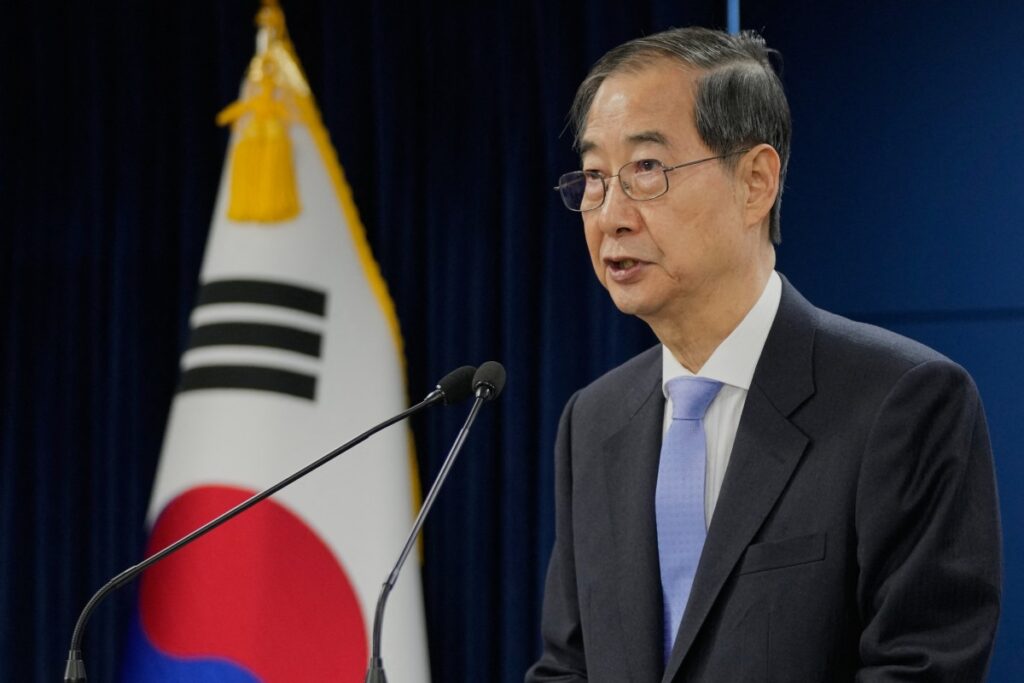
South Korea’s Constitutional Court dismissed the impeachment of Prime Minister Han Duck-soo on Monday, reinstating him as acting president. Han had assumed the role after President Yoon Suk Yeol was suspended for declaring martial law.
The ruling marks the latest twist in South Korea’s deepening political turmoil, which began in December when Yoon’s short-lived attempt to override civilian rule triggered a crisis.
Defying armed soldiers at parliament, lawmakers swiftly overturned Yoon’s December 3 martial law declaration and impeached him. Han stepped in as acting president but was himself impeached weeks later over allegations related to the martial law controversy and judicial appointments.
On Monday, the Constitutional Court rejected the impeachment trial request against Han, ruling five-to-one in his favor. Two judges argued that the case should not have reached the court, as lawmakers lacked the supermajority required for his impeachment.
Han’s actions while in office “cannot be seen as constituting a betrayal of the people’s trust indirectly granted through the President,” the court stated.
The ruling, which is final and cannot be appealed, took immediate effect. Han resumed the acting presidency on Monday, thanking the court for what he called a “wise decision.”
“I believe the people have spoken against the extreme political divide. There is no room for division now—our priority is to move forward,” he said.
The decision is seen as a precursor to a much-anticipated ruling on President Yoon’s impeachment. While legal experts expected a verdict by mid-March, the Constitutional Court has yet to issue a ruling, making Yoon’s case the longest deliberation in its history.
Opposition leader Lee Jae-myung acknowledged the court’s decision on Han but urged it to expedite the ruling on Yoon.
“The entire nation is in turmoil over Yoon Suk Yeol’s illegal military coup,” he said, criticizing the delay. “Every moment that passes, international trust in South Korea erodes, and the economic damage grows.”
If Yoon’s impeachment is upheld, South Korea will be required to hold fresh elections within 60 days.
Legal experts emphasized that Monday’s ruling does not directly impact the pending verdict on Yoon.
“The judges did not rule on the legality of martial law but rather on Han’s involvement,” political commentator Yoo Jung-hoon told AFP.
Yoon was suspended in December and arrested in January on insurrection charges—crimes not covered by presidential immunity. He became the first sitting South Korean president to stand trial in a criminal case but was released in early March on procedural grounds, energizing his supporters.
Over the weekend, hundreds of thousands of South Koreans took to the streets in rallies both supporting and opposing Yoon, underscoring the nation’s deep divisions.
Lawmaker Kweon Seong-dong of Yoon’s ruling People Power Party welcomed Han’s reinstatement, calling the opposition’s impeachment attempt a “politically motivated move that paralyzed state affairs for 87 days.”
“The opposition should apologize to the people,” Kweon said.
